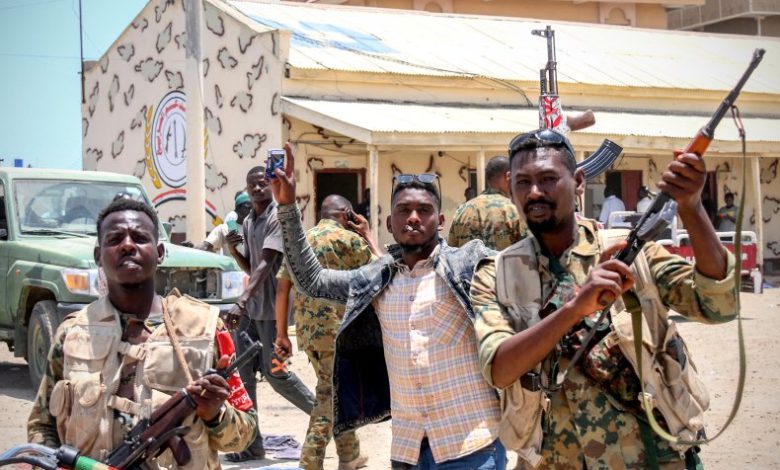Regional Dangers: How Does Sudan’s Conflict Threaten to Push ISIS Back?

As the conflict in Sudan continues, the chances of the war spreading beyond Sudan’s borders are growing, with fighting already spilling over from the capital Khartoum to Darfur, a region of the country with a devastating legacy of violence and genocide committed by the Janjawid militias and a prelude to renewed tension with one of the parties to the current conflict.
Exacerbating the conflict
Sudanese fighters have fought overseas, according to a report by the International Center “Soufan,” and Sudan is now at risk of a counterflow, with foreign fighters traveling to the country to fight on one of the warring parties.
As a long-running body of academic research has detailed, foreign fighters often complicate civil wars and insurgencies, produce new grievances, and often contribute to conflict duration.
Barrons recently quoted the United Nations Secretary-General’s Special Representative for Sudan and Head of the United Nations Integrated Assistance Mission in Sudan (UNITAMS), Volker Perthes, as saying of the armed “fortune seekers” or mercenaries who had traveled to Sudan from Mali, Chad and Niger, that “their number is not insignificant,” apparently concerned about the potential for an influx of foreign fighters into Sudan that would further destabilize the country.
Regional conflict
“There is a serious risk that the conflict will become regional, affecting areas west to the Sahel and surrounding areas on the borders of Sudan, Africa’s third-largest country, and with seven other countries, including Libya, Chad, the Central African Republic, South Sudan, Ethiopia and Eritrea, many of which have been affected by their own conflicts and are no stranger to mercenary activity, particularly Libya and the Central African Republic, the Center said in its report.”
ISIS’s return
ISIS-affiliated groups have proven to be destabilizing Libya and Egypt during the heyday of the so-called “caliphate” before it was overthrown by Egypt, the Sahel region is currently under siege from a range of jihadist groups, including the al-Qaeda-affiliated group, the center said.
While ISIS has never established a branch in Sudan, he said, the State Department has in the past warned about ISIS facilitation networks in the country, and there are always concerns that jihadis will benefit from misrule and a power vacuum on the African continent.
“Research by political scientist Austin M. Doctor has been useful in this regard, finding that African armed groups tend to recruit foreign fighters from neighboring African states, and usually arrive in small numbers, but the conflict in Sudan involves a mix of state, non-state and quasi-state actors, which may change the equation and lead to a more constant flow of non-Sudanese fighters into the conflict.”
“The longer the fighting lasts, the greater the likelihood that investment will increase in a variety of state and nonstate actors, protecting their assets in the country and working through proxies to tilt the balance of power, as the civil wars in Syria and Libya have shown, the more aggressive the war can attract foreign fighters and rebels from the neighboring region and beyond, the Center reports.”












